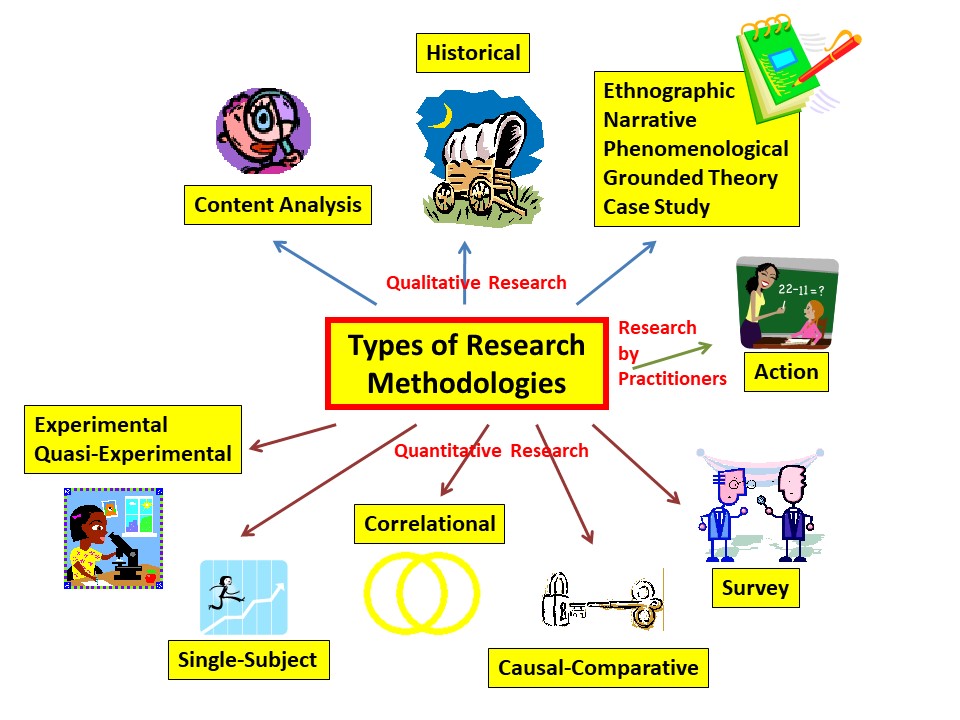Types of Research
How do we know something exists? There are a numbers of ways of knowing…
- -Sensory Experience
- -Agreement with others
- -Expert Opinion
- -Logic
- -Scientific Method (we’re using this one)
The Scientific Process (replicable)
- Identify a problem
- Clarify the problem
- Determine what data would help solve the problem
- Organize the data
- Interpret the results
General Types of Educational Research
- Descriptive — survey, historical, content analysis, qualitative (ethnographic, narrative, phenomenological, grounded theory, and case study)
- Associational — correlational, causal-comparative
- Intervention — experimental, quasi-experimental, action research (sort of)

Researchers Sometimes Have a Category Called Group Comparison
- Ex Post Facto (Causal-Comparative): GROUPS ARE ALREADY FORMED
- Experimental: RANDOM ASSIGNMENT OF INDIVIDUALS
- Quasi-Experimental: RANDOM ASSIGNMENT OF GROUPS (oversimplified, but fine for now)
General Format of a Research Publication
- Background of the Problem (ending with a problem statement) — Why is this important to study? What is the problem being investigated?
- Review of Literature — What do we already know about this problem or situation?
- Methodology (participants, instruments, procedures) — How was the study conducted? Who were the participants? What data were collected and how?
- Analysis — What are the results? What did the data indicate?
- Results — What are the implications of these results? How do they agree or disagree with previous research? What do we still need to learn? What are the limitations of this study?
Del Siegle, PhD
del.siegle@uconn.edu
Last modified 6/18/2019